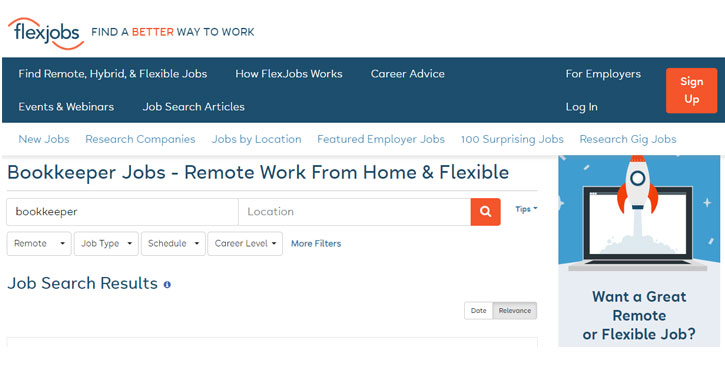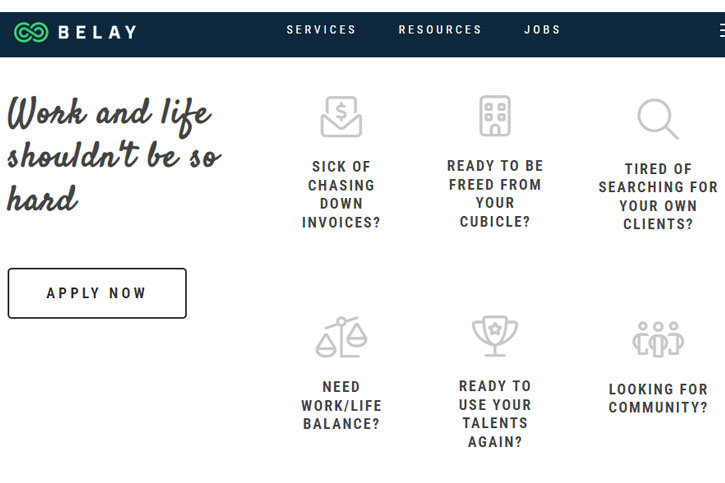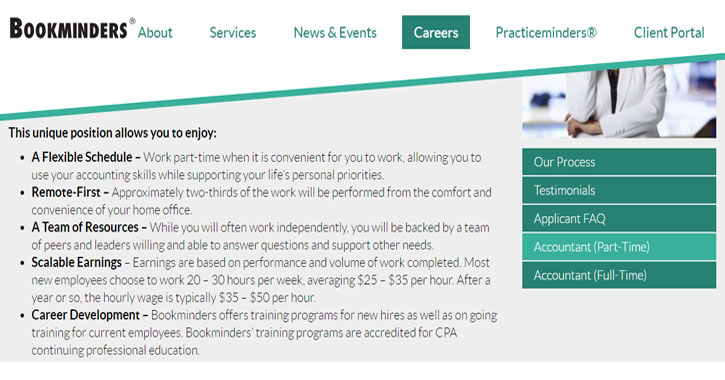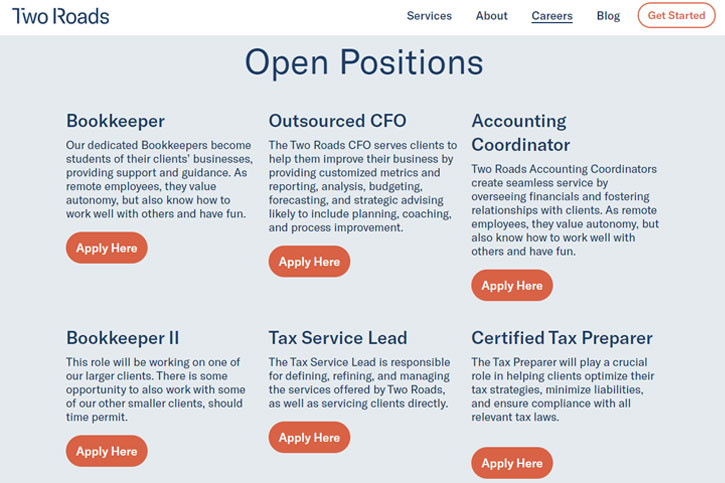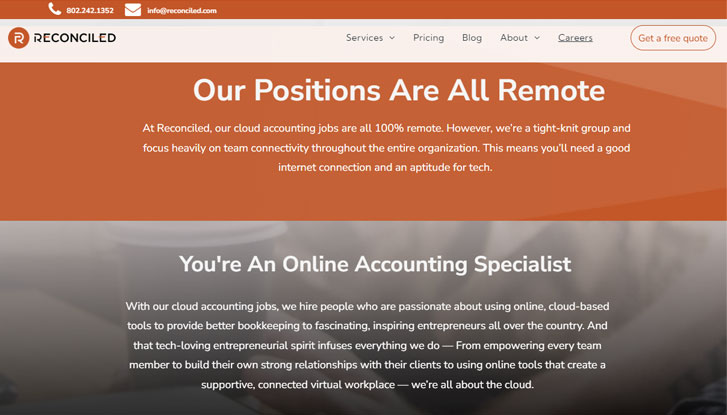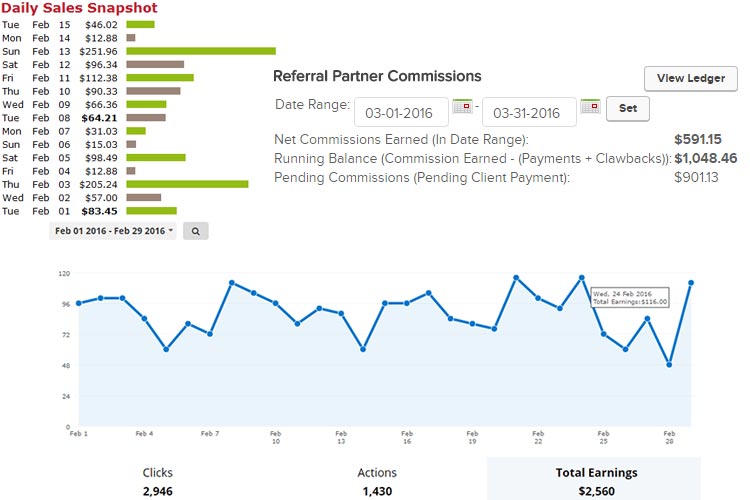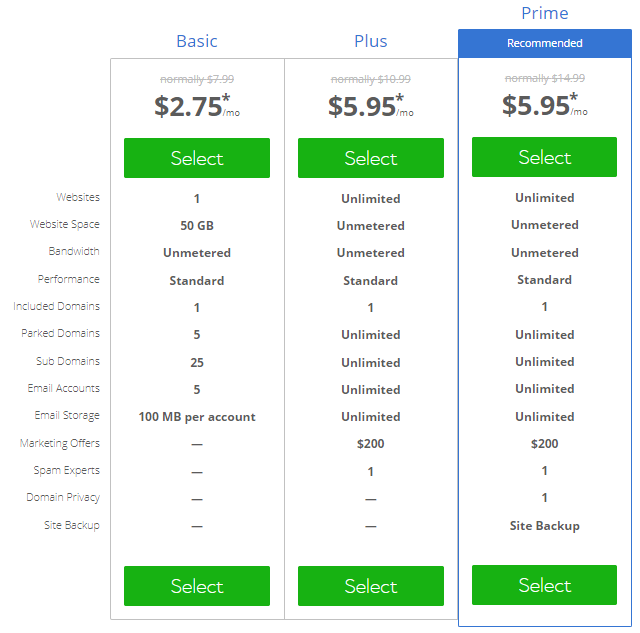Do you genuinely love numbers arranged in spreadsheets with evenly spaced cells? Do you like solving intricate puzzles? If so, you might be a good candidate for virtual bookkeeper jobs.
Virtual bookkeeping is one of those jobs that require little more than you, your computer, and a natural aptitude for making sense of numbers.
As the entrepreneurship mindset becomes more widespread and more businesses are founded, the demand for bookkeepers can only increase.
Also, thanks to existing technologies, web-based tools, cloud services, and the internet, modern businesses are opening up more telecommuting or work-from-home positions, including those for bookkeepers.
Today, you’ll learn about what a virtual bookkeeper does, where to find jobs, and what can come next for a virtual bookkeeper.
What does a virtual bookkeeper job entail?
In the traditional economy, a bookkeeper is someone with advanced computing skills and knowledge of preparing financial statements who is in charge of a business’s daily financial health.
For instance, they’re usually responsible for processing bills and employees’ salaries, as well as collecting payments on invoices. They may also be responsible for the following:
- Maintaining annual budgets
- Updating chart of accounts
- Analyzing financial statements
- Collecting receivables on time
- Recording cash receipts
- Issuing customer invoices
- Monitoring debt level or financial standing
- Maintaining petty cash fund
- Conducting monthly or annual account reconciliation
- Processing payroll
- Maintaining annual budget
- Complying with local, state and federal government laws about financial reporting or taxes
- Performing various admin support tasks
Many people confuse bookkeepers with accountants. However, they are not the same.
Accountants mainly figure out taxes owed and prepare tax returns. They also consult with individuals and businesses to organize their financial records, make sure that everything is compliant with state and federal laws, and suggest ways to save money and maximize tax breaks.
Unlike a certified public accountant (CPA) who holds a finance-related 4-year degree, a master’s degree, and a license to practice, bookkeepers don’t have strict educational and certification requirements.
In fact, bookkeepers perform various accounting tasks without any problems, but they often have to submit sensitive documents to licensed accountants for approval.
This type of delegation is how huge accounting firms are able to cater to multiple clients at any given time.
Virtual bookkeepers have the same responsibilities as traditional bookkeepers, except they do their work remotely.
How much do virtual bookkeeper jobs pay?
As of May 2021, the median salary of a bookkeeper is $45,560 annually or $21.90 per hour, according to the US Bureau of Labor Statistics, with the actual range falling between $18 to $50 per hour.
A virtual bookkeeper can work as an independent contractor for an online bookkeeping firm hired by businesses who need bookkeepers, an employee for a company needing a virtual bookkeeper, or as an independent contractor with their own clients.
As such, the salary of virtual bookkeepers depends largely on the type of employment obtained, the number of clients handled, level of educational attainment, any training and certifications gained, work experience, and specialty.
Freelance bookkeepers who have multiple clients usually charge by the hour, and they can possibly make up to $50 an hour.
Bookkeepers employed with a company earn somewhere between $35,000 and $55,000 annually.
Of course, like most online jobs, virtual bookkeepers can work on the side and earn much more.
Do note that some bookkeeping firms would require you to sign a non-compete contract, which means you can’t put up the same business or offer your services as a freelancer to other companies or individuals as long as you’re employed with that firm.
30 Places to Find Virtual Bookkeeping Jobs
If you’re interested in a new field and would love to try your luck with bookkeeping, do note that aside from basic accounting and finance-related knowledge, you have to be able to work your way through programs like QuickBooks, Xero, Sage, and Kashoo.
When it comes to bookkeeping, practice makes perfect, so before you change your career, obtain proper education, train wherever you can, and master the science of bookkeeping through practice.
Here are some websites that are hiring for virtual bookkeeping jobs:
1. FlexJobs
Home to many freelancers, FlexJobs has an entire category dedicated to home-based bookkeeping jobs.
It’s a place for seasoned virtual bookkeepers who can take on the challenge of juggling multiple clients since the FlexJobs job board lists hand-screened job leads from numerous companies.
If you’re serious about bookkeeping as a freelancer, you’d find the $15/month membership fee worth spending.
If you’re on the fence, don’t worry, since FlexJobs offers a 30-day money-back guarantee if you’re not happy with the leads you see.
Check out the latest job openings on FlexJobs here.
2. AccountingDepartment.com
Launched in 2007 as ‘Balance Your Books,’ the site has remote positions available for bookkeepers.
The tasks required of bookkeepers range from payroll processing to preparing general ledgers.
AccountingDepartment.com hires only applicants residing in the US.
Virtual bookkeepers here are full-time, W-2 employees who earn by the hour, get paid holidays, generous vacation packages, 401 (k) plans, and group medical, dental, life, vision, and accident insurance.
3. Belay Solutions
Launched in 2010, this virtual assistance company offers virtual bookkeeper jobs as part of its talent pool.
Belay is always on the lookout for US residents in 45 out of 50 states with at least 5 years of accounting or bookkeeping experience and advanced skills in QuickBooks.
Of course, since this is an at-home bookkeeping position, you’re expected to have a home office set up, a computer with a webcam, fast internet, and the latest version of QuickBooks.
You’ll also have to consent to a background and reference check during your application.
As a Belay bookkeeper, you’ll be reconciling bank statements and credit/debit cards, processing payroll, preparing 1099 forms, maintaining a chart of accounts, managing cash flow, and producing weekly, monthly, and annual balance sheets, income statements, and other financial documents.
4. Click Accounts
Click Accounts is a BPO (Business Process Outsourcer) company aimed at providing accounting and bookkeeping services.
They help other businesses by processing bill payments, calculating accounts receivables, and reconciling bank accounts.
Not much is posted about the virtual bookkeeper job, but the company is accepting resumes all year round to their email address.
5. Bookminders
This Pennsylvania-based company has been providing bookkeeping services around Pittsburgh, Philadelphia, South Jersey, and Baltimore for the last 25 years.
It is home to many part-time and full-time licensed accountants, bookkeepers, and other finance professionals.
Note that even if you want a part-time virtual bookkeeping job, you’d need to live within 45 miles of a Bookminders office, as you’d need to come in the office for training sessions, meetings, and other important events.
Their requirements are less strict than others. Candidates must have at least 2 years of bookkeeping experience. Of course, those with accounting, finance, or business-related bachelor’s degrees always have an edge.
If hired, bookkeepers can enjoy a flexible schedule, a ton of training/career development programs, and incentive-based income with the potential of an increase based on performance.
6. Intuit
Intuit offers part-time virtual bookkeeper jobs through QuickBooks Live Bookkeeping.
A QuickBooks Live bookkeeper assists customers through video conferencing, messaging, and client management portal. These tools are provided by Intuit.
Examples of tasks you’ll be asked to do include setting up their books and chart of accounts, reconciliation of bank accounts, running balance sheets, closing their books at year-end, and other general QuickBooks tasks.
To be qualified to apply, you need to have at least one of the following: an active CPA credential, an active Certified Public Bookkeeper (CPB) credential, a bachelor’s degree in Accounting/Finance, or 3+ years of experience managing the books for a small business.
You would also need to have an active QuickBooks Online ProAdvisor certification by the time you start employment.
You must be willing to pick up a shift between 5AM to 5PM PST, Monday to Friday, and work 20+ hours a week.
7. Two Roads
Two Roads is regularly seeking workers to fill virtual bookkeeper jobs.
You will work fully remotely and will be expected to be available to be contacted Monday to Friday, from 9AM to 5PM EST.
They are seeking self-starters who do not need to be micromanaged. This is one of the more flexible jobs posted on this list where your passion as a virtual bookkeeper can really shine.
8. Fusion CPA
Fusion CPA is an Atlanta-based company that is constantly looking for people to fill various finance- and tax-related positions.
Virtual bookkeeper jobs that open from time to time include Outsourced Controller and QuickBooks Online Pro-Adviser Bookkeeper.
If your desired position isn’t listed, click on “Apply For Another Position” and fill out the form with your information.
9. FINSYNC
FINSYNC is an all-in-one payments platform combining software and services that helps businesses get their finances in order, centralize control of cash flow, and get in touch with the right financial professional at the right time.
FINSYNC currently has openings for virtual bookkeeper jobs for independent contractors to help businesses with such tasks as historical cleanup, invoicing, bill payments, maintaining a chart of accounts, and other simple bookkeeping jobs.
They need someone with more than 2 years of accounting or bookkeeping experience and proficiency in accounting software, such as FINSYNC’s solutions, QuickBooks, Xero, etc.
10. Robert Half
This specialized staffing firm got its start in 1948 and has now grown to offer its services to businesses worldwide.
They’re currently looking for remote bookkeepers for a few different companies, with pay ranging from $18 to $24 per hour.
11. 1-800Accountant
1-800Accountant is a full-service virtual accounting firm that helps businesses with their tax, bookkeeping, and accounting needs.
They periodically look for remote bookkeepers to help clients maintain accurate ledgers, prepare quarterly and yearly closing reports, reconcile bank and credit card accounts, and other bookkeeping tasks to maintain a business’s financial health.
You’d need to have a minimum of 5 years of experience in bookkeeping and knowledge of accounting software such as QuickBooks, Gusto, Xero, and others.
A minimum of 30 hours a week is required, with more hours during tax season.
12. Empowered Profit
This company organizes businesses’ finances so business owners can feel empowered instead of worried about how much or how little they’re making.
Empowered Profit is continually hiring virtual bookkeepers to be online financial managers who perform basic bookkeeping tasks as well as maintain good client relationships and client satisfaction through excellent customer service.
Applicants must have above-average knowledge of QuickBooks Online as well as 2+ years of bookkeeping experience, with bonus points for payroll experience.
13. Ledger Gurus
Ledger Gurus is an accounting firm specializing in eCommerce businesses, especially those selling through Amazon and Shopify.
They currently have openings for remote bookkeepers who are residents of Idaho, Wyoming, Florida, Arizona, Utah, or Kansas.
14. Supporting Strategies

They’re currently offering virtual remote part-time bookkeeper positions to independent contractors who have at least 5 years of bookkeeping or accounting experience
You can earn between $29 to $31 per hour, depending on your education, certifications, licenses, and experience.
15. Integra Global Solutions
Integra Global Solutions prides itself on providing world-class technology and software solutions to help its clients focus on what they do best.
They continually offer full-time positions for remote bookkeepers who have graduated from college, have at least one year of experience in bookkeeping, and have an excellent grasp of QuickBooks or other accounting software.
16. Creative Financial Staffing
Creative Financial Staffing (CFS) helps big and small companies find professionals in accounting, finance, and IT to work with.
There are plenty of remote bookkeeper positions currently listed on their site, which you can skim on their job search page.
17. Accountingfly
Accountingfly is a job search hub, similar to FlexJobs or Indeed, but specializing in remote and cloud accounting jobs. It connects freelance accountants, bookkeepers, and tax preparers, as well as those looking for more steady employment with employers that they’ve vetted.
18. Accountingprose
Accountingprose is a small business bookkeeping and payroll service provider mostly to companies in the health and wellness, professional services, and technology industries.
They are always on the lookout for virtual bookkeepers who have more than 3 years of experience, can work with as many as 15 to 25 clients a month, and have a working knowledge of accounting software, preferably Xero.
19. inDinero
inDinero provides virtual bookkeepers and accountants to small businesses to help them save money and streamline their business processes.
They periodically have openings for virtual bookkeepers, so check back on their Careers page from time to time.
20. Backyard Bookkeeper
Backyard Bookkeeper offers bookkeeping and payroll services to various businesses. They take pride in their bookkeepers’ financial knowledge and skills.
They are periodically looking for virtual bookkeepers but are only considering Utah, South Carolina, or Georgia residents.
21. Blue Fox
Blue Fox offers bookkeeping, accounting, and tax preparation services for nonprofits and social enterprises.
They’re currently hiring virtual bookkeepers who can work full-time and are knowledgeable about QuickBooks Online and Bill.com.
22. Beech Valley Solutions
Beech Valley is a staffing firm that prides itself on providing only the top accountants, financial experts, and IT risk professionals to all kinds of businesses.
They’re constantly looking for bookkeepers with at least 5 years of hands-on experience and proficiency in QuickBooks and Xero.
23. iHireAccounting
iHireAccounting is a job board focused on the accounting sector, offering both entry-level and senior-level positions to accountants, bookkeepers, payroll specialists, tax specialists, and other financial jobs.
Search for keywords like “virtual bookkeeper” or “remote bookkeeper” to get a list of bookkeeping jobs you can do from anywhere.
24. FlexProfessionals
FlexProfessionals is a woman-owned business that matches businesses with professionals that are looking for meaningful part-time or flexible work. This is a great option if you can’t work full-time for whatever reason.
25. Reconciled
Reconciled is an online bookkeeping and accounting service provider with a 100% remote workforce.
They’re currently hiring online bookkeepers, aka cloud accounting specialists for both full-time and part-time positions.
26. SmartBooks
SmartBooks offers online bookkeeping services and often has positions for full-time, remote bookkeepers.
The SmartBooks team is completely remote, so you have more flexibility with your schedules.
As virtual bookkeepers, you are compensated with a monthly stipend for home office supplies and connectivity, as well as 401k with a company match, insurance (medical, dental, vision, life and disability) and ample PTO.
27. Bookkeeper360
Bookkeeper360 provides cloud-based accounting services.
If you’re looking for virtual bookkeeper jobs, this company is a good option, since there are positions for entry-level staff accountants, senior accountants, and even accounting managers – all with remote option.
What’s great about Bookkeeper360 is that they offer unlimited PTO, paid family leave, company-matched 401k, and insurance (medical, dental, and vision benefits). They also offer career advancement and work equipment.
28. LHH Recruitment Solutions (formerly Accounting Principals)
Accounting Principals merged with its fully integrated worldwide HR solutions hub, LHH Recruitment Solutions.
If you’re looking for virtual jobs in accounting and finance, go to the job search and enter “remote bookkeeping” to check for availability.
29. Cloud Friday Accounting
Make sure to bookmark Cloud Friday Accounting, which regularly opens remote accounting positions.
30. Good Accountants
GoodAccountants.com isn’t a company like other companies on this list. However, if you’re on a search for virtual bookkeeper jobs, register for this site since they connect businesses with accounting and bookkeeping professionals.
Pros and Cons of Home-Based Bookkeeper Jobs
PRO:
One of the best things about being a bookkeeper is that you don’t need to have a CPA to be one.
There have been office assistants who have earned their way into a full-blown bookkeeping career because they’ve developed real-world accounting skills.
CON:
Unfortunately, you can’t become a virtual bookkeeper on a whim.
This is the type of online job that requires a very specific set of skills, which includes advanced knowledge of the finance world and business transactions, computer skills, excellent communication, and the ability to connect with clients.
PRO:
Unlike an office-based bookkeeping job, a virtual bookkeeper job gives you the freedom to work whenever and wherever you prefer.
You’ll be in control of the clients you manage and work-related logistics such as your work hours and schedule.
CON:
Of course, having this much flexibility means that you’re going to work harder than traditional bookkeepers, especially if you decide to go the freelance route and seek clients on your own.
It’s not going to be easy to land an account if you’re new to this field, but once you’re in, you’ll be reaping the benefits in no time.
PRO:
The best things about virtual bookkeeping jobs are the income potential and positive job outlook.
Even if you work freelance, business owners will value the work you do because handling finances and accounting are highly sensitive and they would pay premium rates for your skills and loyalty.
Bookkeepers are always in demand (even after tax season), so you won’t have to worry about downtimes.
How to Start Your Own Virtual Bookkeeping Company
If you’re not interested in working for a bookkeeping firm, you can always start your own bookkeeping business from the comfort of your own home.
You’ll need a bit of capital here, but about $2,000 is still low when compared to traditional business startup costs.
This amount will mostly cover licenses to online bookkeeping tools like QuickBooks Online and Xero, as well as training (if you’re transitioning from office-based bookkeeping to a remote position).
Note that the $2k capital I stated only includes you as the main bookkeeper who would offer services to clients, so you’re practically investing in your own skills.
However, once you decide to build a bookkeeping firm and hire other accounting professionals, you’d need to allot salary and benefits, licenses to bookkeeping tools, and training packages.
Whether you’re offering bookkeeping services on your own or managing a team of bookkeepers, the biggest chunk of expense you’d be facing is ongoing training.
Just like any professional service, learning in the finance industry should be continuous to keep up with technology, new laws, and other fluctuating elements that affect your bookkeeping business.
To succeed in this line of work, you’d need to study how to compete in the ever-changing, globalized economy.
This means you would have to maintain deadlines, follow strict guidelines, and deliver work as smoothly as possible.
It’s important that you establish clear terms with your clients, which would help them manage their expectations.
Virtual Bookkeeper Jobs Outlook
As I said earlier, the outlook for virtual bookkeeping jobs continues to be optimistic as the need continues.
Ecommerce sites, modern businesses, and traditional companies that are embracing online technologies benefit financially from hiring bookkeepers remotely.
Whichever route you take in online bookkeeping, you have to agree that it’s a lucrative time for CPAs, any virtual bookkeeper, and other finance professionals.
Home-based jobs like virtual bookkeeping and work-from-home accounting jobs provide you with more time to balance life with work.
Your client base will also expand quite massively since conducting business online means your bookkeeping service can be sought by any entrepreneur or company no matter which part of the world they come from.



